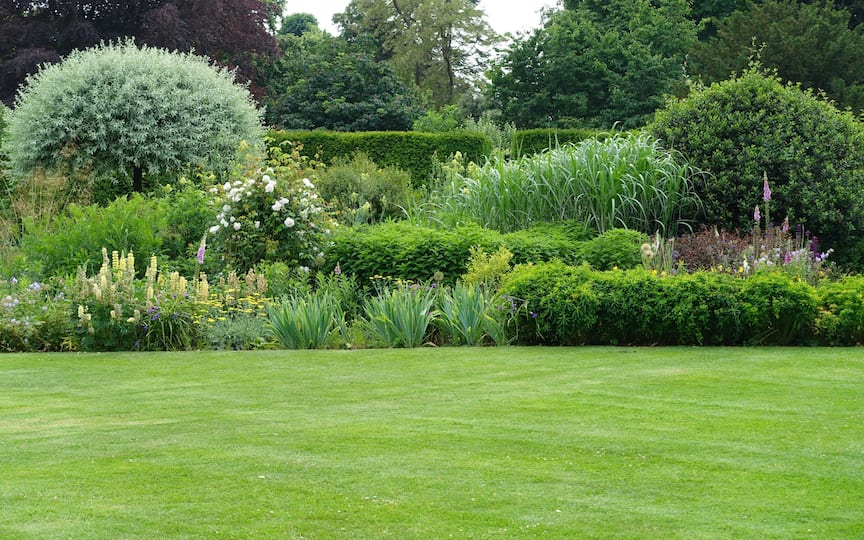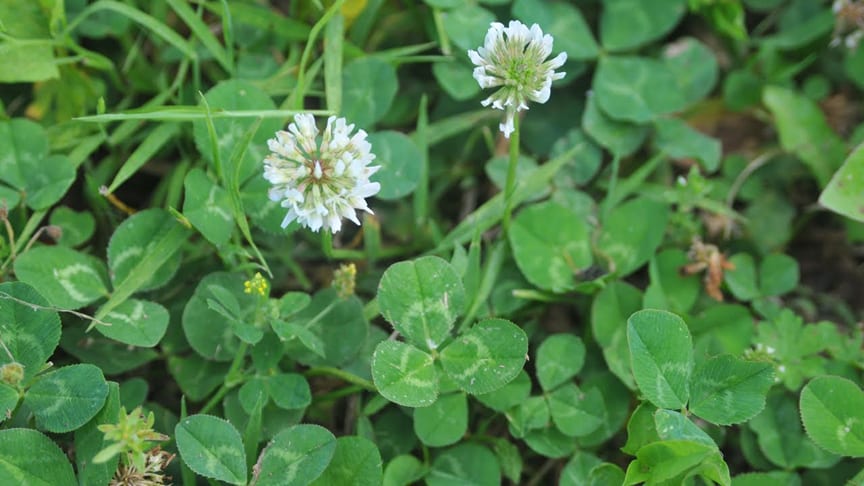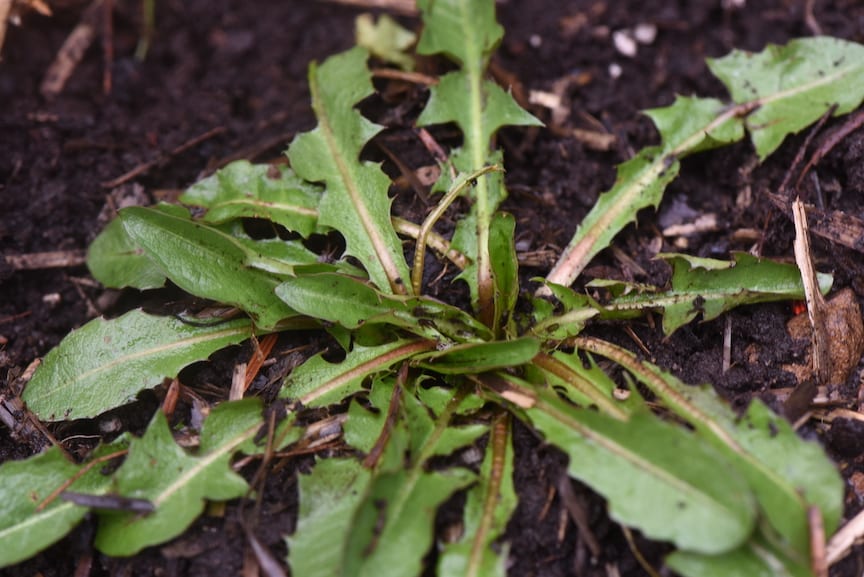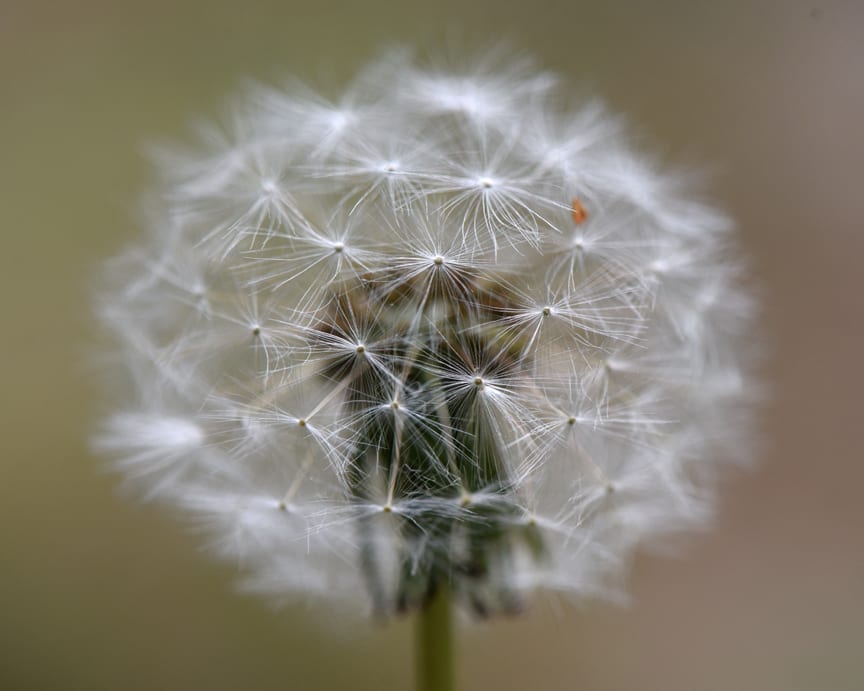
Gardening Green with Doug
Everything You Need to Know About Growing A Lush, Organic Lawn
STOP BELIEVING “THE GREAT LAWN LIE”
By Doug Oster
March 24, 2021
It takes a lot for me to jump up on my soapbox when it comes to organic gardening. Usually, it’s a diplomatic tone used, when explaining the benefits of a chemical-free landscape. When the ads touting a weed-free lawn doused in pesticides, herbicides and synthetic fertilizers start appearing — usually with beautifully composed shots of children playing on a lawn drenched in all three — my blood boils.
It gets old for my wife when I start yelling at the television or computer screen, but the anger is driven by the fact people have been brainwashed by Madison Avenue to think having a beautiful yard, means spending their hard-earned cash on a litany of products that can have such a negative effect on our environment.
I call it “The Great Lawn Lie.” The truth is, nothing can outgrow grass when it’s happy. That’s why we try so hard to prevent it from invading our vegetable garden and flower beds.
How We Came to Love Perfect Lawns
It was during the dawn of the suburbs that the lawn became part of our cultural lexicon. At first, grass seed was sold as a mixture, and it included clover. It was a brilliant idea, as the clover forms a symbiotic relationship with the grass. Clover does something called nitrogen fixing. The plant can make nitrogen available to the grass, obviously helping it grow.
Anyone old enough to remember running barefoot across those “quilted” lawns and stepping on a honey bee feeding on clover, will understand what I’m talking about. The yard wasn’t just a monoculture of perfectly manicured grass, it was filled with all sorts of other plants and no one cared. It was green and beautiful.
At some point, a marketing genius figured out the best way to sell the big three lawn chemicals was convincing suburban homeowners of extreme prejudice toward clover and that all the other plants, too, were invaders and needed to be stopped.
A Brief History of Herbicide
It was the introduction 2-4-D, an herbicide that could be applied to broadleaf plants which especially made the job easy. The thin blades of grass were unaffected as amateur “yardeners” happily spread the chemicals all over the lawn in an effort to quell these noxious weeds. Add a liberal dose of fertilizer to emulate the fairway of a golf course and then pesticides to kill anything that might threaten the precious plants and the rest of the weekend was for cooking out.
Homeowners were hooked, literally. Without a dose of all three, their lawn would go into withdrawal, and the soil life was detrimentally affected by the synthetic products. There was not much left to support the grass, so it was another trip to the store for another round to keep the color and texture just right.
By the way, 2-4-D is one of the ingredients of Agent Orange — an herbicide used during the Vietnam War which has been causing problems for veterans ever since.
“This is what you’re going to let your kids play on? These are the things you want washing downstream into our rivers?”
As I deliver my fire and brimstone sermon from said soapbox, I explained a much safer and, in my opinion, better way to have an awesome lawn. But like anything worth doing, it’s not without some challenges and it won’t happen overnight.
How to Grow Great Organic Grass
It’s all about creating an environment for grass to thrive.
Step 1: Testing Your Soil
The first step is to get a soil test, your local county extension will have one that’s the most accurate and is also inexpensive. It involves taking soil samples and sending them off to the extension lab. The results will give you a scientific basis to get the pH and fertility back to optimum levels.
Those numbers will be accompanied by information on how to apply organic products to get everything right.
It’s going to take a few seasons to get everything working perfectly, but it’s worth it. Not only for pets, kids and others at your house, but everyone living downstream too.
Step 2: Choose an Organic Fertilizer
When it comes to improving fertility, Western Pennsylvania homeowners and others have a great, inexpensive resource called ReVita fertilizer from Ohio Earth Foods. These pellets are basically dehydrated chicken manure and available locally from Hahn Nursery and the Pittsburgh Agway Stores. I’m sure there are other retailers and there are many different great organic, granular fertilizers that would work if you couldn’t find the ReVita.
As the lawn is being improved and the soil comes back to life, it will get easier as everything under the ground will help the grass grow.
Step 3: Lawn Care
Keep the grass long, three and a half inches or more, this will help shade weeds. Be sure to sharpen the mower blade annually — this assures the grass is cut, not torn, which benefits the health of the turf. Water in the morning when rain is scarce and soak the lawn, not just sprinkle the area. A deep watering once a week, if we don’t get rain, will force the roots deeper, making the grass more resilient when the summer heat arrives.



Step 4: Grass Clippings Are Great
Leave the grass clippings on the lawn as long as they are not forming a mat. They make excellent compost as they decompose and do not create thatch. In fact, an organic lawn rarely has any issue with thatch build-up. In the fall, rent a machine called an aerator. I like to share the cost with a neighbor. The machine will take thumb-sized plugs out of the soil which reduces compaction and allows fertilizer and water to get down to the root zone easily.
Step 5: How to Prevent Crabgrass Organically
There is an organic weed and feed called corn gluten meal. It’s a great crabgrass preventer as it stops seeds from completing the germination process. The product is benign to us and is the product of the corn milling process. It can be purchased in two forms which are ground differently. When bought from the garden center, corn gluten meal will go through a spreader. When bought as livestock food from a feed store, it’s applied by hand but is usually less expensive. The key to using it is timing. It must be applied before the weed seeds sprout, our indicator for that is when the yellow forsythia shrubs begin to bloom. Wait too long and it’s useless, as the seeds sprout. It’s applied in the spring and then again in the fall around September.
Corn gluten meal works on all seeds, not just weed seeds. For overseeding, wait at least six weeks after an application of the organic product.
Step 6: Maintain Your Lawn
Adding fresh seed annually to the lawn helps too. The new plants are more vigorous than what’s been there for years.
Step 7: Learn to Love A Bit Of Healthy Variety
As an aside, did you know that dandelions are one of the most nutritious plants on the planet? Every part is edible except the seed head. The flowers are a great food source for a multitude of pollinators and are beautiful. They are only reviled because gardeners have bought into the Great Lawn Lie.
Find a safe patch of emerging dandelions — an area that has not been sprayed by chemicals or the family pet. Pinch the center greens from a plant, and see what you think.
They are traditionally prepared with bacon grease, so you get the best of both worlds: healthy dandelions and tasty bacon.
Don’t Believe You Can Improve Your Lawn Without Chemicals?
There are organic lawns thriving all over the country. In Pittsburgh, a drive-by Phipps Conservatory and Botanical Garden’s extensive organic lawn should convince anyone that this can be done by following these simple steps.
A chemical-free lawn will be beautiful, but safe to use as a play space and best of all, walk barefoot through the pretty green blades. Just be sure to tiptoe around those honey bees.
Doug will be teaching four free virtual organic gardening classes every Thursday at 4:30 p.m., beginning on March 25. The classes will cover indoor and outdoor seed sowing, composting, soil amendments, organic pest and disease management, gardening with children and much more. Classes sponsored by Farm to Table of Western Pennsylvania. For details and registration information go to dougoster.com

Thanks, Doug…Do you know any Pgh lawn service companies that does this organic fertilizing?
Preach it Doug!! I have never added a thing to my lawn except for Dutch White Clover seed. Pretty dandelions and violets in the spring and my lawn ( thanks to the clover) stays green without supplemental water all summer. My next door neighbor has chemicals sprayed on her lawn several times a summer. The poor guy tried to sign me up. I did my best to be polite in my adamant rejection of his services!
Here you go Debbie- https://www.phipps.conservatory.org/green-innovation/at-home/sustainable-landcare-services
We also provide lawn care services. For more information visit our site: https://www.fieldpromax.com/